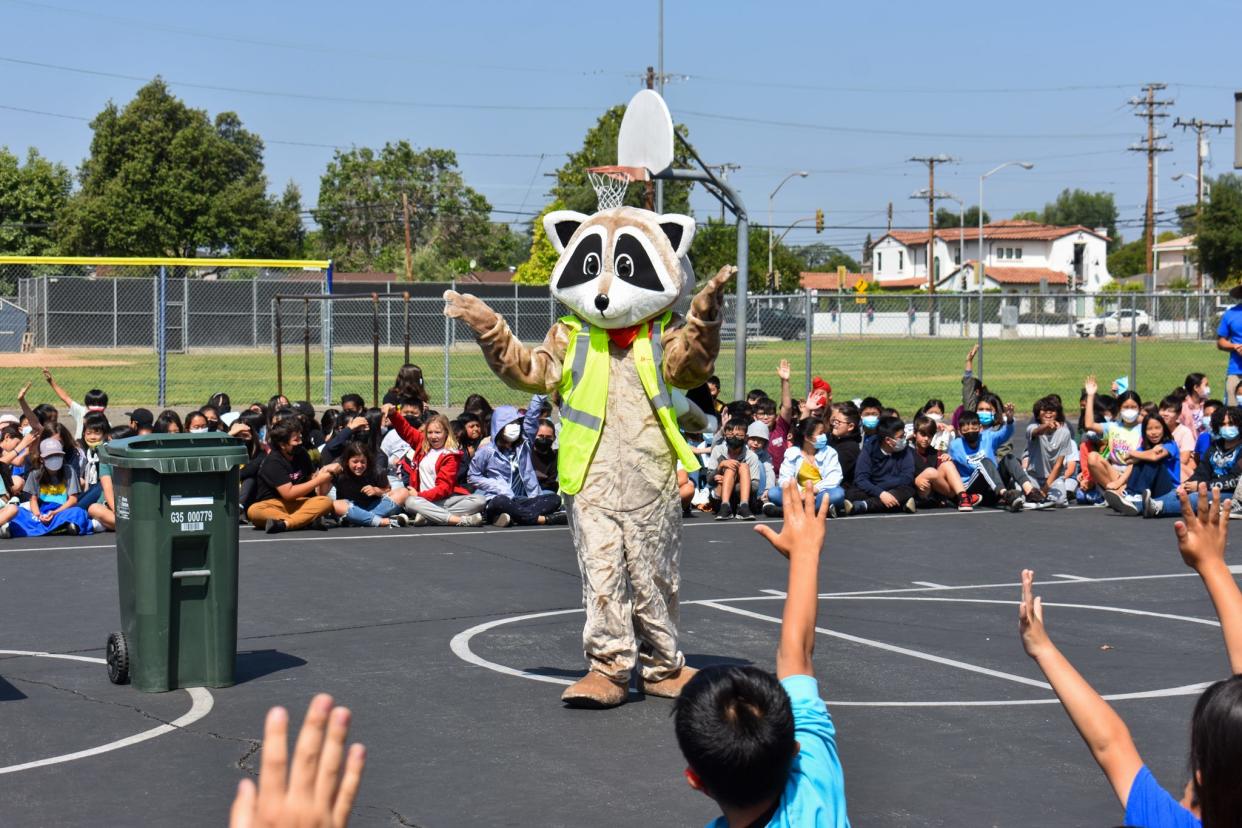Eco-tip: Crying carrot pleads for recycling of organic waste

The latest effort to boost participation in countywide food waste recycling programs features a charismatic crying carrot.
“Please don’t throw me in the landfill,” the cute root pleads. “I want to help create compost.”
Harrison Industries, a trash collection and recycling company based in Saticoy and serving much of Ventura County and part of Santa Barbara, is featuring the cartoon carrot in print advertisements and online images. Below the weepy carrot, Harrison customers are instructed: “Instead of throwing your food waste in the trash, drop it into plastic or paper bags, seal the bags securely, and toss them into your organics/yard waste cart.”
The Harrison bagging instructions also apply to parts of Ventura County collected by WM, formerly Waste Management, but programs in parts of Ventura County collected by Athens Services do not ask for bagging of food waste. Athens allows bags but asks residents to place food scraps directly into organics carts.
At least for now, bagging is important in some areas because it enables the local recycling of separated yard clippings. Removing food scraps, which currently must be composted elsewhere, creates a clean stream of just yard clippings, which can be turned into mulch and compost locally.
Whether through a bag-based program or not, participation seems to be lagging, according to collectors and processing centers. “We’re getting only a fraction of the food waste we know is out there,” said Nan Drake, a spokesperson for Harrison Industries.
Rondi Guthrie, vice president of government affairs for Athens Services, agrees: “We need to educate and motivate a lot of people still not participating.”
Perhaps it will take a crying carrot to help local jurisdictions meet state mandates. Tears were an effective tool for a famous environmental plea of the past. Starting in 1971, “Iron Eyes Cody,” portraying a Native American, cried in a series of public service announcements from the anti-litter nonprofit Keep America Beautiful. The first iteration had Cody, in full indigenous regalia ranging from beaded moccasins to a feather in his braided hair, turn to the camera and shed a giant tear as trash is thrown at his feet from the window of a passing car.
According to “The story of the crying Indian,” in the September 9, 2014, edition of Priceonomics, the advertisement won two Clio awards and helped reduce litter by 88% across 38 states. However, according to Snopes.com, which debunks myths, the actor turned out to be a second-generation Italian-American, the braided hair was a wig and the tear was glycerin.
In the current age, when skepticism may be higher and some are likely to reject a guilt-inducing, highly emotional message delivered by anyone suspected of inauthenticity, perhaps a cartoon mascot is a safer option.
Athens also has a mascot, Rocky the Recycling Racoon, a Disney-esque costumed character who stars in instructional videos and participates in school presentations. Rather than saying anything, Rocky’s signature slapstick stunt is to slap away food scraps about to be improperly disposed. The character then wiggles in an exaggerated dance move while humorously wagging a finger at surprised actors playing recycling transgressors.
The state agency responsible for enforcement of recycling mandates, CalRecycle, used a turtle named Turner in public service announcements they ran in "every California community rolling out food waste recycling in 2022," according to Maria West, communications director. "Californians said they associated turtles with impacts of trash pollution and felt positive about recycling when they saw Turner," she said.
Jennifer Andrews, area communications manager for WM, emphasized the need for community-based social marketing strategies to “meaningfully connect" with people who must be motivated to recycle. “We have used mascots, such as a robot called ‘Recycler,’ with young children, but we find that in-person classes and coaching with recycling experts translate to the best numbers in terms of participation,” she said.
Mascots may attract attention and experts may be instructive, but the most effective messengers may be friends and neighbors. If you want to help, encourage those you know to participate in recycling programs.
David Goldstein, an environmental resource analyst with the Ventura County Public Works Agency, can be reached at 805-658-4312 or david.goldstein@ventura.org.
This article originally appeared on Ventura County Star: Eco-tip: Carrot, raccoon mascots tried to boost recycling of organics

